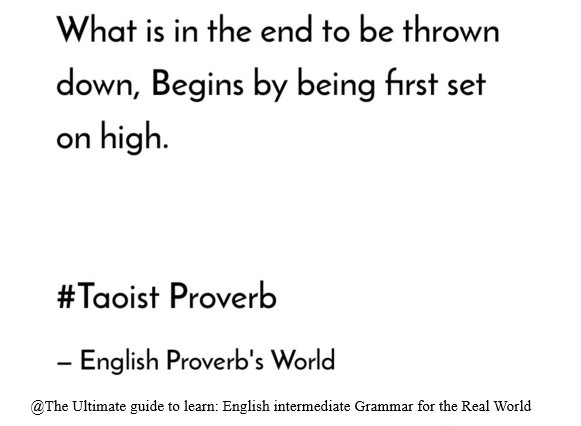Hello! Friends,
In this article, we are
going to discuss Stative verbs, which are also known as Non-action verbs. We
answer the question may form in your mind why we need to learn and to know
about the Stative verbs, where these stative verbs used. As in the description of
the site, we are going to from real-world examples—we will learn about today’s
topic by proverbs, the general truth or saying. Furthermore, we will see some exceptions
in using stative verbs in detail.
Happy learning.
Grammar
point: 9.1)
Stative verbs (Non-action verb):
They are the verbs that do not
express an action, instead of representing an action it represents the state. So, they also called
Non-action verbs. We can use these verbs to talk about senses, thoughts,
beliefs, emotions, and state of being. We must know that it cannot be for
describing an action. Let us one-by-one through examples of Proverb.
 |
| Stative verb: know |
Here, in this proverb, “Every seed knows its time.”
-The verb ‘knows’ used the sentence
related to thoughts.
Other examples associated with thoughts are:
-Believe, Agree, Remember, Understand,
Prefer, etc.
More
examples:
 |
| Stative verb: Love |
Proverb:
“When we
cannot get what we love, we must love what is within our reach.”
Here the verb ‘love’ relates to emotions.
Other examples associated with emotions are:
-Hate, Like, Dislike love, etc.
 |
| Stative verb: See |
Proverb:
“A guest sees more in
an hour than the host sees in a year.”
Here the verb ‘See’ relates to Senses.
Other examples associated with senses are:
-Test, Hear, Smell, Sound, See, Feel, look, etc.
 |
| Stative verb: Be |
Proverb:
“Time is the best teacher.”
Here the verb ‘is’ expressing State of being.
Other
examples associated with State
of being are:
-Be, Appear, Need, want, etc.
NOTE: DO NOT USE
STATIVE VERBS WITH -ing.
|
For instance:
Wrong: Who wanting something to eat?
Corrected: Who wants something to eat?
More examples:
-Do you know where Mom is?
-I like writing Blogs on English Grammar.
-Do you love watching movies?
However, we can you '-ing' form in action verbs as underlined
verbs.
Grammar
point: 9.1.1)
Stative verbs Exceptions:
 |
| The ultimate guide to Stative verbs |
Yes, there are some exceptions, when
it is used with ‘-ing’ form, it happens because some verbs can express both
states and Action depend on the context.
 |
| Verb: Think |
Proverb:
“If you
start thinking of death, you are no longer sure of life.”
Here the verb
‘Think’ expressing Action.
Another
example: She thinks he is boring.
On the other
hand, the above example, we can use the same verb in the State context.
 |
| The ultimate guide to Learn: Stative verb Exception |
“What is in the end, to be thrown down, begins by being first on high.”
Here the verb
‘Be’ expressing Action.
In contrast, Proverb:
“The time is the best teacher” Used in State form.
 |
| The ultimate guide to Learn: Stative verb Exception |
Proverb:
“Having a good discussion is like having
riches.”
Here the verb
‘Be’ expressing Action. In contrast,
-The batsman
has a good shot selection ability.
In the above
example, the verb in state form.
Proverb Source: English Proverb's World.
It is the first we used proverbs as examples, so let us you liked or not, if yes comment below.
We have
covered plenty of grammar points in this blog. If you have not checked yet then
have a look. If you like learning English grammar from the examples and expiations
provided in this blog consider Subscribe by email notification so you never the
latest grammar point when we post it.
Thank you for learning
grammar points. If you have any question or suggestion then let me know in the
comment section, I’ll be happy to answer
them.






0 Comments